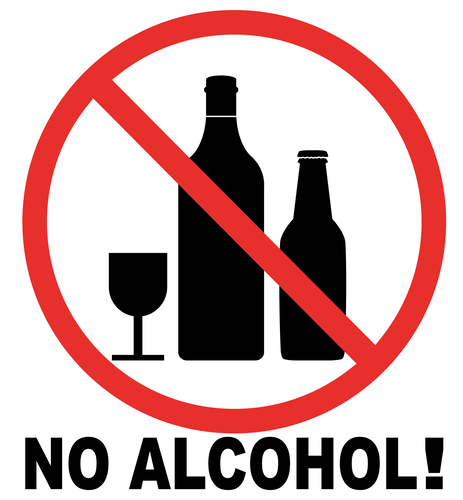Symptoms of diabetic ketoacidosis include nausea, vomiting, abdominal pain, and a characteristic… The doctor must exclude these other causes before diagnosing alcoholic ketoacidosis. Characterized by the production of ketones in the liver, AKA develops due to the body’s inability to source adequate glucose, leading it to metabolize fat into ketones for energy. Elevated levels of these ketones lead to a high anion gap metabolic acidosis, a state where the blood becomes too acidic. Excessive alcohol consumption is a primary factor in the development of alcoholic ketoacidosis (AKA).

They can also reduce the amount of insulin your body produces, leading to the breakdown of fat cells and the production of ketones. Glucose comes from the food you eat, and insulin is produced by the pancreas. When you drink alcohol, your pancreas https://ecosoberhouse.com/ may stop producing insulin for a short time. Without insulin, your cells won’t be able to use the glucose you consume for energy. Understanding what makes someone addicted to alcohol can be the first step in helping a person seek treatment.
Defining Alcoholic Ketoacidosis
If you are diagnosed with alcoholic ketoacidosis, your recovery will depend on a number of factors. Seeking help as soon as symptoms arise reduces your chances of serious complications. Treatment for alcohol addiction is also necessary to prevent a relapse of alcoholic ketoacidosis. If a person is already malnourished due to alcoholism, they may develop alcoholic ketoacidosis. This can occur as soon as one day after a drinking binge, depending on nutritional status, overall health status, and the amount of alcohol consumed.
Subsequent mismanagement can lead to increasing morbidity and mortality for patients. AKA typically presents with a severe metabolic acidosis with a raised anion gap and electrolyte abnormalities, which are treatable if recognized early and appropriate management instituted. Given the increasing epidemic of alcohol-related healthcare admissions, this is an important condition to recognize and we aim to offer guidance on how to approach similar cases for the practising clinician. Alcoholic ketoacidosis, a specific form of this condition, occurs when there is an excessive accumulation of ketone bodies due to prolonged heavy alcohol consumption coupled with a lack of food intake. The overproduction of ketones leads to an acidic environment in the blood, disrupting normal bodily functions and posing serious health risks. This highlights the delicate balance the body maintains in utilizing ketone bodies for energy and the potential consequences when this balance is disrupted.
Can Alcoholic Ketoacidosis kill You?
Transcend’s Los Angeles sober living homes are located in some of the most iconic areas of the city, filled with luxurious and upscale amenities, providing plenty to do for those in our transitional housing community. Alcohol consumption significantly influences metabolic processes, which can culminate in the development of Alcoholic Ketoacidosis (AKA). When alcohol is consumed, it is rapidly absorbed from the gastrointestinal tract and disseminated throughout the body, primarily affecting the liver where it undergoes metabolism. This process involves the conversion of alcohol to acetaldehyde, a highly toxic and reactive byproduct. Acetaldehyde contributes to tissue damage, oxidative stress, and the generation of reactive oxygen species (ROS), which can alter the redox state of liver cells, leading to a cascade of metabolic disturbances. The Recovery Village Columbus offers several treatment options, including medical detox, inpatient rehab, and more, to provide you with personalized care at our Joint Commission-accredited facility.
These conditions can be fatal if left untreated or if they worsen over time. Further biochemical investigation after treatment showed a rapid decline in the level of ketones and normalization of pH. It can be helpful to understand the basic guidelines for alcohol consumption so you can determine whether you are drinking above recommended levels and engaging alcoholic ketoacidosis in potentially harmful alcohol use. Intravenous benzodiazepines can be administered based on the risk of seizures from impending alcohol withdrawal. Antiemetics such as ondansetron or metoclopramide may also be given to control nausea and vomiting. Your prognosis will be impacted by the severity of your alcohol use and whether or not you have liver disease.
What causes alcoholic ketoacidosis?
Alcoholic ketoacidosis is a condition that can happen when you’ve had a lot of alcohol and haven’t had much to eat or have been vomiting. When this happens, it can cause ketones, which are acids, to build up in your blood. You can learn how to reduce your alcohol intake or eliminate it altogether.
The resultant vomiting and abdominal pain from excessive drinking can further impair the ability to eat, thus aggravating the situation. It is essential for healthcare providers to consider these factors when diagnosing and managing patients with suspected ketoacidosis and to provide appropriate resources for those struggling with alcohol use disorders. Treatment typically includes glucose administration to stimulate insulin production, thiamine supplementation to prevent complications such as Wernicke’s Encephalopathy, and volume repletion to address dehydration. Management of AKA aims to reverse the pathophysiological causes and restore metabolic balance.

